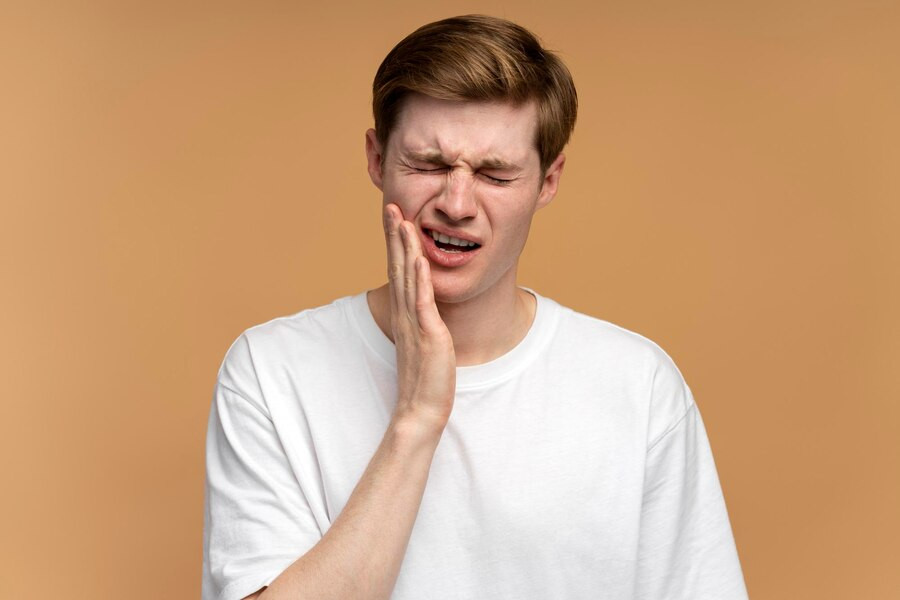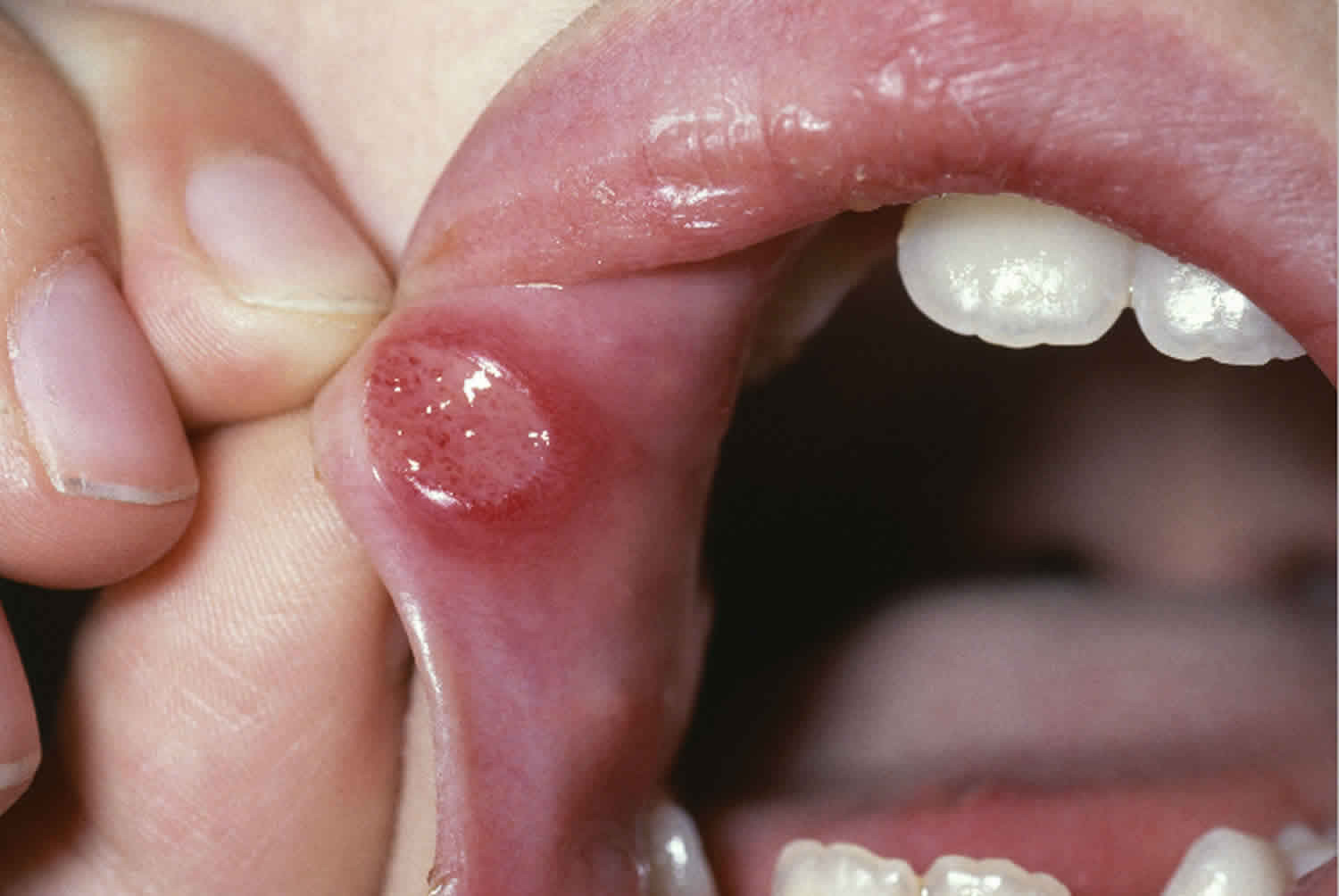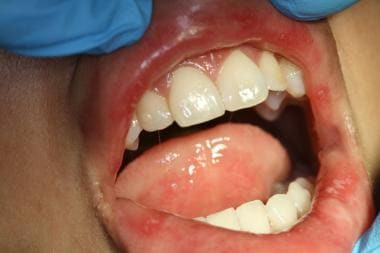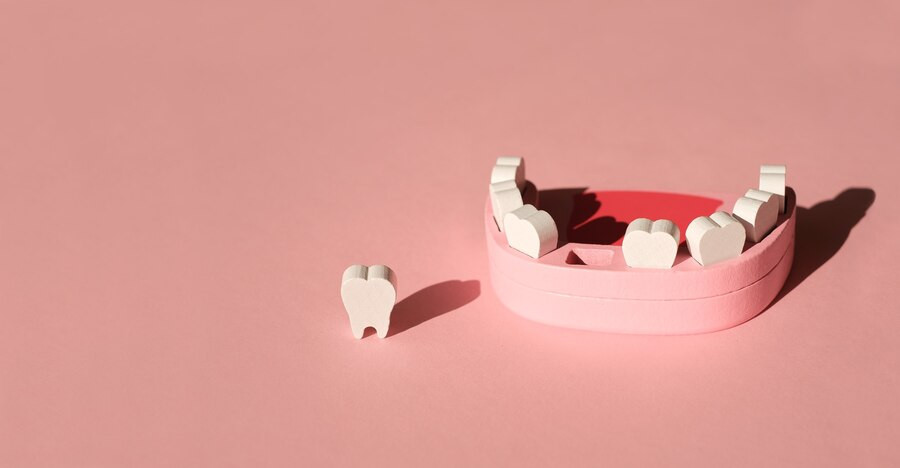Definition
Mouth ulcers are diminutive lesions that can manifest on the gums, lips, intraoral region, or palate. This oral disease, referred to as aphthous ulcers or canker sores, is a condition frequently reported by individuals seeking medical assistance. Approximately 20% of the global population may encounter mouth ulcers at some point in their lives.
Mouth ulcers can cause significant discomfort for individuals, particularly during activities such as eating, drinking, speaking, and oral hygiene practices. In general, oral ulcers are benign ailments that will spontaneously heal. Nevertheless, approximately 20% of individuals may encounter recurring mouth ulcers.
There are three types of mouth ulcers, including:
Minor Mouth Ulcers
The ulcers are typically oval or circular in form, measuring between 2 and 8 millimeters, usually less than 5 mm. Small ulcers typically require 1-2 weeks to heal and may result in some discomfort. Ulcers in the mouth typically do not result in scarring once they have healed. This ulcer type is the most prevalent oral ulcer encountered on a daily basis.
Major Mouth Ulcers
These ulcers typically exhibit a less distinct shape, may protrude slightly from the mouth, and penetrate deeper into the tissue than mild ulcers. The dimensions frequently exceed 10 millimeters.
Major ulcers, being wider and deeper, may require several weeks to heal and can result in scarring.
Herpetiform Mouth Ulcers
This ulcer type resembles canker sores and exhibits ulcers akin to herpes sores in the mouth. Unlike herpes, this form of mouth ulcer is non-contagious.
Herpetiform ulcers are small, numerous, clustered lesions that commonly develop on the tongue. These ulcers can coalesce to become a single big oral ulcer. Herpetiform ulcers can reappear rapidly, exhibit uneven borders, and typically do not result in scarring within a month.
Causes
Mouth ulcers are generally not caused by infectious diseases, unless there is an infection such as HFMD (Singapore flu, or Hand, Foot, and Mouth Disease), which is often found in children.
Mouth ulcers are not contagious through sharing food, eating utensils, or kissing. The precise cause of oral ulcers remains unknown. Several factors are believed to contribute to the development of mouth ulcers, such as:
- Minor tissue injuries from dental procedures include fillings, incidental gum bites by canines, and denture use.
- Unintentionally biting cheek or tongue.
- Using orthodontic appliances such as braces or a dental retainer.
- Experiencing a response to food or medication, such as non-steroidal painkillers.
- Using toothpaste with irritants.
- Consume a high amount of acidic meals like citrus fruits, pineapples, or strawberries.
Risk Factors
Additional factors can elevate the possibility of developing mouth ulcers, apart from those mentioned above. These include:
- Deficiencies in vitamins and nutrients include vitamin B12, vitamin B9, zinc, and iron.
- Fluctuations in hormones throughout the body, such as those occurring during pregnancy or menstruation,
- Emotional stress and anxiety might exacerbate or contribute to the mouth ulcers you are experiencing.
- Smoking habit or recently quit smoking within the first several weeks.
- Insufficient sleep and low sleep quality.
- Genetic factors
- Weakened immune systems are caused by existing diseases, like:
- Celiac disease is a digestive condition that affects the small intestine and is activated by consuming gluten
- Viruses, bacteria, or fungi are the main causes of infections
- Ulcerative colitis is an inflammatory condition affecting the lining of the colon and rectum
- Autoimmune diseases such as lupus
- Diabetes mellitus
- HIV/AIDS
Symptoms
Oral ulcers typically have a white, yellow, or gray center with red borders. An individual may experience one or more mouth ulcers simultaneously. Swelling surrounding the incision may accompany mouth ulcers. Oral ulcers typically result in discomfort, which might intensify while brushing teeth, consuming salty, sour, or spicy meals, drinking, or speaking.
Herpetiform ulcers in some individuals can coalesce and increase in size, causing intense pain and recurring frequently.
Diagnosis
A medical examination and interview are common methods for diagnosing this condition. The doctor will inquire about your symptoms, determine if the mouth ulcer is a one-time occurrence or recurrent, review the patient's medical history, and assess the regular medications taken.
No additional tests are often required for patients unless they have severe symptoms indicative of a specific disease or frequently suffer from recurring mouth ulcers, necessitating further evaluation.
Management
Although the majority of oral ulcers have the potential to resolve spontaneously, doctors may recommend topical medication, mouth rinses, and pain medication to relieve the patient's pain and prevent the risk of complications. If a patient's oral ulcers manifest as a consequence of a specific condition, the doctor is planning to manage the patient's concurrent medical conditions.
You can also take other actions at home to help with the pain caused by mouth ulcers, such as:
- Stay hydrated by consuming ample amounts of water.
- Rinse your mouth with warm water and a teaspoon of salt four times daily.
- Ensure proper dental hygiene to expedite recovery and reduce the likelihood of a future occurrence.
- Avoid consuming hot and spicy meals and beverages until the ulcer has healed.
Typically, oral ulcers resolve spontaneously after 10 to 14 days. If you have a mouth ulcer persisting for over three weeks and are having other symptoms, make an appointment with your dentist.
Complications
Most cases of mouth ulcers are not severe and can self-heal within a few days to weeks. Although uncommon, there are several issues that can arise, such as:
- Oral cellulitis can result from a secondary bacterial infection of the ulcer
- Dental abscess
Prevention
You can take preventative actions to lower the risk factors for mouth ulcers by doing the following:
- For maximum oral health, brush your teeth twice daily and floss once daily.
- Utilize a toothbrush with gentle bristles to prevent tissue irritation.
- Consume nutritious food.
- Regularly visit your dentist to assess the state of your teeth.
If your dentist identifies your mouth ulcers as being associated with a specific disease based on other symptoms, they will prioritize treating the underlying disease to lessen its severity and enhance healing.
When to See a Doctor?
If you encounter the following, seek care from a dentist immediately:
- Chronic ulcers persist for three weeks or longer.
- Recurrent ulcers that occur before the previous ulcer has fully healed.
- Persistent pain is unresponsive to medicine.
- Severe oral ulcers.
- Oral ulcers with concomitant fever or diarrhea.
Looking for more information about other diseases? Click here!
- dr Hanifa Rahma
Cleveland Clinic - Mouth Ulcer (2020). Retrieved 18 March 2023, from https://my.clevelandclinic.org/health/diseases/21766-mouth-ulcer.
Health Line - What causes mouth ulcers and how to treat them (2022). Retrieved 18 March 2023, from https://www.healthline.com/health/mouth-ulcers#.
Medical News Today - Everything you need to know about mouth ulcer (2018). Retrieved 18 March 2023, from https://www.medicalnewstoday.com/articles/317984#.
Health Direct - Mouth sores and ulcer (2022). Retrieved 18 March 2023, from https://www.healthdirect.gov.au/mouth-sores-and-ulcers.












